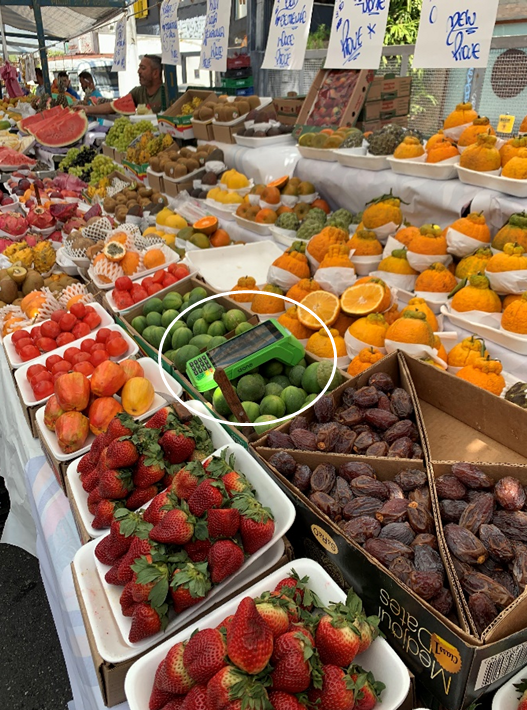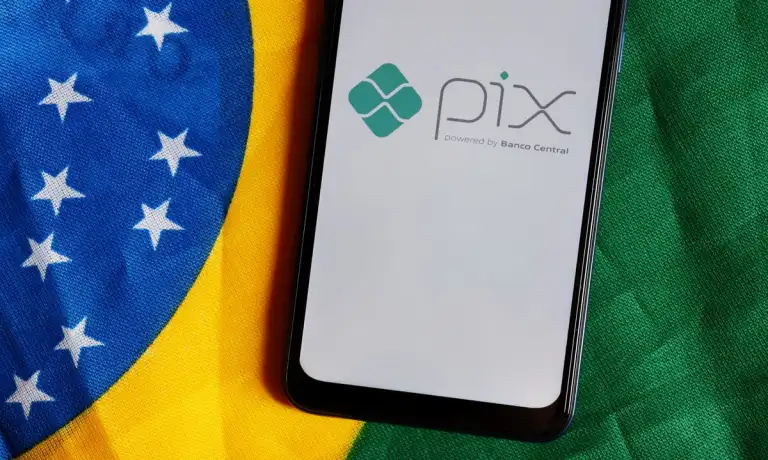Brazil is well-known for having a supportive regulatory system and promoting the rapid adoption of digital technologies. VEF Principal Evin Mc Kay recently visited São Paulo and one trend is clear: Pix, the country’s real-time payments system, is dominating the payments landscape.
Pix, Brazil’s real-time payment system, is a tool developed by the Central Bank of Brazil which allows individuals and businesses to make easy, secure and rapid digital money transfers. Unlike traditional bank transfers or payments via debit and credit cards, which often take hours or even days to complete, Pix transfers money instantly, 24/7, and operates seamlessly across any bank or digital wallet in the country. By scanning a QR code, or entering a Pix key (such as the recipient’s phone number), users can send money to friends, pay a merchant, or settle a bill.

Digital adoption rates are driving financial inclusion
Since its launch in November 2020, Pix has experienced an unprecedented adoption rate, and has become a ubiquitous part of daily life in Brazil. As of September 2024, 154 million people, or 70% of Brazil’s total population, are registered with Pix. This figure is growing rapidly, and the Central Bank of Brazil continues to announce new record volumes flowing through Pix – the latest of which saw 227 million transactions in a single day, representing USD 21 bln in payments.
“It is hard to convey the overwhelming impact Pix has had on Brazil, not just on financial services, but also in daily life. Most importantly, Pix has contributed significantly to driving financial inclusion. Since its launch, over 70 million individuals have made their first-ever digital money transfer, and Brazil now boasts an unbanked population of less than 10%. This is an impressive milestone in the Latin American context. To put this into perspective, in Mexico, 40% of the population remains unbanked,” says Evin.
Pix has driven a transition from cash to digital payments amongst consumers and businesses alike. By the end of 2024, digital payments are expected to represent almost 95% of consumer expenditure, a world-leading metric. This surpasses levels in the US, UK and France which remain around 50-60%.
“To give some perspective, this marks my fifth trip to Brazil, and to witness the adoption rate of digital payments is incredible. Despite having spent several weeks in Brazil, I have never once handled physical currency. Whether you are settling a bill at a hotel in São Paulo, or paying less than a dollar to a street vendor in Rio de Janeiro, digital payments, and increasingly Pix, are almost unanimously accepted. More often than not, it is the preferred method of payment. Pix is embedded in daily life, and you see users everywhere – from street vendors to upscale boutiques”, says Evin Mc Kay.
Together, the strides towards financial inclusion and the shift away from cash stands to benefit consumers, businesses and the broader economy in tandem – contributing to a safer, more efficient and increasingly transparent society and financial system.

The future of fintech in Brazil
Despite already being an incredible success story, Pix remains in the early stages of an ambitious Central Bank vision for the digitization of financial services in Brazil. In the coming years, we expect to see a continued evolution of Pix infrastructure, with new features like enabling instalment-based financing over Pix, called Pix Parcelado, and a direct debit infrastructure, Pix Automático. The continued development of Pix, combined with the broader Central Bank roadmap of open banking and asset tokenisation, are providing a best-in-class framework for the development of the next generation of financial services in Brazil. Already, Pix has been a key tailwind to the development of fintech in Brazil:
- Expanding the total addressable market (TAM): The continued increase in financial inclusion in Brazil is also expanding the addressable market of individuals who can be reached with digital financial services.
- Increased transparency: The digitization of payments allows greater transparency of financial data, enabling enhanced underwriting and unlocking access to credit for those previously unserved.
- Promoting competition: Instant transfers has removed financial friction, allowing individuals to adopt new digital banks, wallets, and ‘super apps’ whilst still retaining real-time payments to friends, family and merchants.
- Lower costs: Pix is operated by the Central Bank and guarantees free digital payments or money transfers to consumers, and a significantly lower cost base for businesses by reducing fraud and removing reliance on third-party infrastructure
At VEF, spending time on the ground in our markets and witnessing the evolution of these trends first-hand, we are constantly re-invigorated with enthusiasm by the opportunity for fintech. This holds especially true in our core geographies, like Brazil, where we see an incredible combination of secular fintech evolution and a highly supportive regulatory framework.

